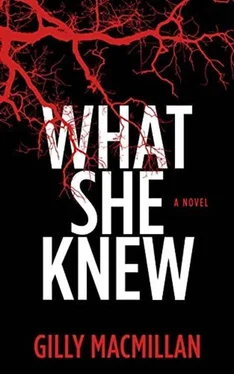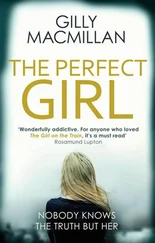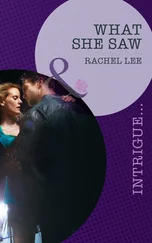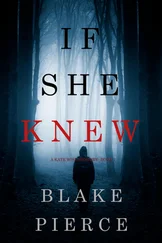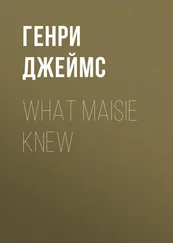There was a single garage to the side of the bungalow; its door was shut but in good nick, and the driveway had been expensively relaid at some point recently. There was no crunchy gravel to give us away. There was also no vehicle in the driveway, no curtains drawn at the front and no lights on in the house, and I hoped to God the place wasn’t empty.
On my signal, two of the men approached the front door and stood either side of it, tucked in, so that they weren’t visible through the frosted glass in the door, not until they were ready to be.
There was a security light above them, but it didn’t come on. They had a battering ram with them, a black metal cylinder, so that they could break down the door if necessary.
They didn’t look at me. They were focused on the door, waiting to hear my voice in their earpieces. ‘Go,’ I whispered into my radio. I knew the command would transmit loud and clear, and they didn’t hesitate. They rang the bell, hammered on the door, shouted through the letter flap: ‘Police, let us in. Police!’
The noise ripped through the pre-dawn stillness.
By the time a light came on in the hallway of the bungalow the other properties around us were lit up like Christmas trees and we were about to bash the door in.
A woman opened it, just an inch or two at first, suspicious eyes peering through. She looked as though she’d been asleep. She wore tracksuit bottoms, plastic clogs and a nurse’s tabard. My men pushed past her. I followed.
‘Where is he?’ I said.
She pointed towards the end of the hall opposite. One of my men was already down there; the other had gone into the front rooms. I ran down the hall, but even before I’d travelled those few paces I knew it had gone wrong when my man said, ‘In here, boss,’ and his voice sagged. He stood in the doorway just ahead of me and his body language had relaxed, adrenalin gone. There was no threat.
As I pushed past him, he said, ‘He’s not going anywhere.’
In the middle of the room was a hospital bed. In the bed lay a man, his eyes wide balls of fear. He was underneath a white sheet that he’d pulled up to his neck with fingers that scrunched the material tight. A hospital band was visible on his wrist. The only clue to his relative youth was his brown hair. His face hung from his bones and his skin was grey apart from high red spots on his cheekbones, from fever, or morphine. He was hooked up to a pump. An oxygen mask was attached to his face, the elastic digging into his cheeks, and a bag of dark orange urine hung from the side of the bed.
Beside the bed was an armchair, and a table, with books on it, along with a laptop computer, a remote control for the TV that sat on the chest of drawers in a corner, and a cardboard tray for collecting vomit. Beside the door was a wheelchair.
The nurse was beside me now. ‘He’s dying,’ she said. She had tribal scars on her face, two rough, raised lines on each cheek, and eyes that told me that she’d seen death before.
I turned to my man. ‘Search the garage,’ I said, but I already knew that there’d be no sign of Ben Finch.
Zhang phoned me mid-morning. She’d just parked on my street, she said, and no they hadn’t found Ben but could I let her in? She wanted to speak to me.
I listened at the front door for her footsteps, reluctant to open it until I knew she was there. A peek from my bedroom window had told me that overnight the numbers of journalists had dwindled to just two or three, but I didn’t want to give them a photo opportunity.
When I heard her footsteps, and I heard the journalists call out to her, I began to undo the latch, but the expected ring on the bell didn’t come. Instead I heard her curse. I opened the door a crack.
My doorstep was awash with milk. It covered the front door and dripped down onto the doormat at my feet. It pooled onto the short front path and it was littered with broken plastic. A pair of two-pint bottles, my twice-weekly delivery from the milkman: full fat for Ben and his growing bones, semi-skimmed for me. Smashed to pieces.
I pictured hands throwing them, feet kicking them, the impact, the explosion of white liquid, the dirty, messy aftermath, and I knew I was meant to understand it as a rebuke, that it labelled me as a woman with a filthy doorstep: such an old-fashioned taint that marks you out as the worst, sluttish kind of woman. I read it as snide vigilante justice, the domestic equivalent of a white feather through the door.
You can see how my mind was rampaging, now that I was cornered, and alone.
‘Rachel, go back in,’ Zhang snapped. ‘I’ll deal with this. You go in.’
I did as I was told. She borrowed a mop and a plastic bag to gather the debris, and when she came in after cleaning up I said, ‘Do you think somebody did it on purpose?’
‘I can’t say that for sure. It might have been an accident.’
‘You know it wasn’t.’
‘I don’t know anything.’
‘Did they see who did it?’ I gestured towards the journalists.
‘They say they didn’t. They say it was like that when they arrived this morning.’
‘They’re liars.’
‘Rachel, it’s nothing. It could have been an accident. Don’t let it get under your skin.’
But it was too late for that.
We went down to my studio, taking the dog. I couldn’t bear to be near the front door, with its smeary residue of vandalised milk that shamed and frightened me.
In the studio I put the heater on this time, embarrassed in front of Zhang to indulge in the pre-dawn masochism that had compelled me to sit in the cold while I looked online.
Zhang told me about the letter then, and about the dawn raid that had turned up a dying hoaxer.
‘He was a broken person,’ she said. ‘His child died during surgery, when Mr Finch was operating.’
‘Was it John’s fault?’
‘No. It was a very risky operation. The father had been informed of that, and the child would have died without it. John wasn’t at fault. Nobody was.’
‘Was it a boy or a girl, the child?’
‘I don’t know. Apparently the death drove the father mad. He’d been bringing the child up alone anyway because the mother had died. Also to cancer. He wrote a series of letters to the hospital threatening legal action, but he had no case against them, so it was hopeless. And now he has terminal cancer himself. The whole family, wiped out by that disease.’
‘How did he know about Ben?’
‘He saw it on the telly, recognised John, and he thought it was a chance to get back at him. That’s all it was, a spiteful act. I’m sorry. We’re not back at square one though. We’ve got other avenues to pursue.’
Her words were reassuring in themselves, but I could see that it cost her an effort to arrange her features into an expression of optimism.
As she stood up to leave, my photographs caught her eye.
On the wall above my desk was a collage of pictures I’d taken over the years, and almost without exception they were portraits of Ben. They were my best work.
They were mostly in black and white, and mostly taken on old-fashioned film and developed and printed by me, in a dark-room I’d rigged up in the garage of our family home. John had been happy to hand the garage space over to me. He wasn’t a DIY man.
My camera of choice had been a Leica M20, given to me by Ruth and Nicholas. I processed the films myself, and spent hours poring over the negatives, deciding which ones to print.
The printing process was a joy: the murky red light in which images of Ben emerged from the chemical soup, a kind of alchemy, painting with light, bringing something from nothing. It was a wobbly, unreliable, unpredictable process, yet it yielded images of such beauty and power, and I never tired of it.
Читать дальше
